Planning on moving to Malaysia with family and wondering how to go about it?
I hear ya!
There’s plenty to think about – visas, which city and state to settle down in, how much living here actually costs… Yeah, it gets overwhelming real quick.
But I hope to take some things off your mental load. I’m a mama of 1 living in Kuala Lumpur (born and bred!) with an unbridled passion for research (gotta put that Asian eldest daughter energy to good use >.<) and I’ve looked into everything families need to know before moving here.
In this complete relocating to Malaysia guide, I’ll cover:
- All visa types available for moving to Malaysia
- Most family-friendly neighborhoods to settle down in
- The goods and the bads of living in Malaysia
- Safety in Malaysia
- Cost of living in Malaysia with family
- Healthcare and digital nomad-friendly insurance
- Best education options
Sounds good? Let’s get right into it!
Disclosure: Mama’s Guide to Malaysia is reader-supported. When you buy through links on my site, I may earn an affiliate commission, at no extra cost to you. Thank you!
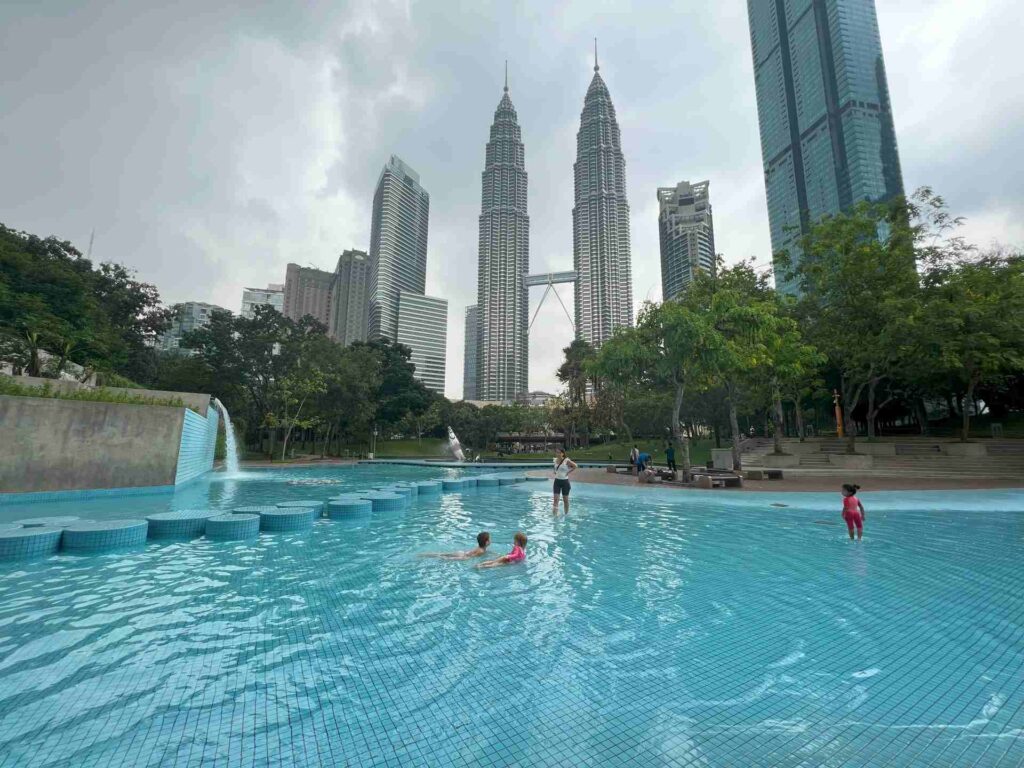
Okay First Things First: Can Foreigners Live In Malaysia?
With the right visa – yep! You just have to figure out the type of visa to apply for based on the purpose of your move.
Most expats in Malaysia move here for one of these reasons:
- To take up a job offer
- To retire
- To reunite with family
- To live the digital nomad life (there’s a visa for that)
I’ll walk you through all the visa options you can consider for you and your dependents.
Visa Options For Moving To Malaysia
1. DE Rantau Nomad Pass
The DE Rantau Nomad Pass is Malaysia’s Digital Nomad Visa. With this, digital professionals can live and work remotely in Malaysia.
You can be an especially good fit for the Nomad Pass if you work remotely in a tech-based industry. Examples: cybersecurity, blockchain, AI, digital content, and software development.
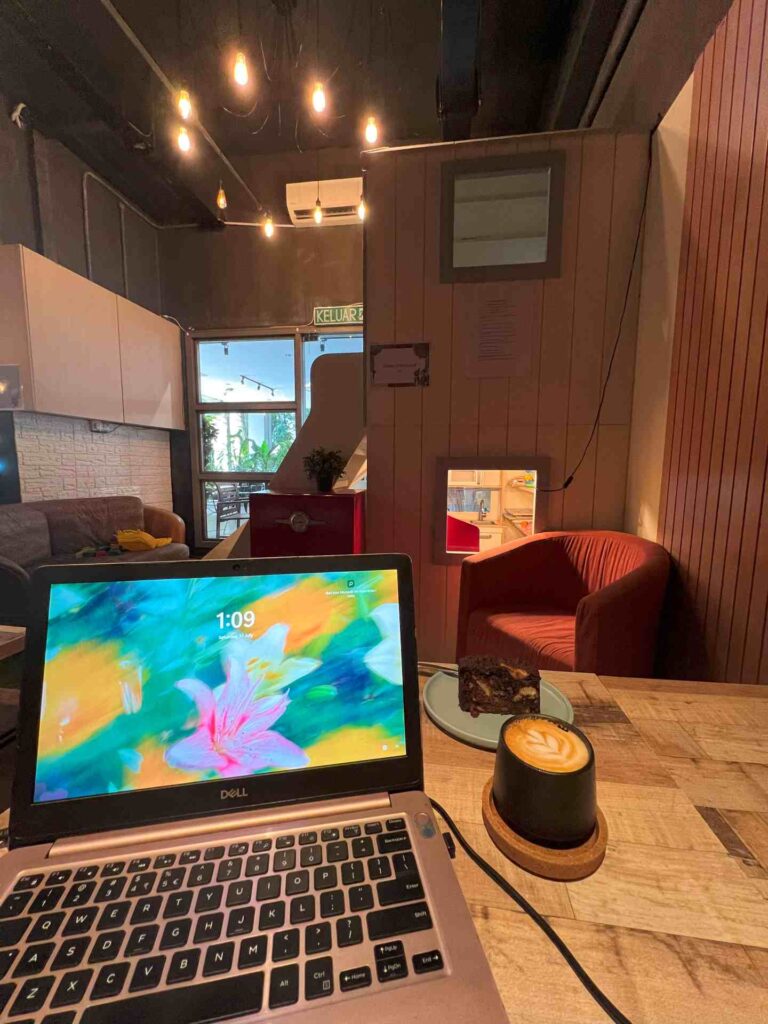
If you have a remote job that’s not in a tech-based industry, you can still apply. The annual income requirement for non-tech talents is higher though.
Eligibility:
- Must be 18 years old or older.
- Open to digital freelancers, independent contractors, remote employees, and entrepreneurs who work remotely.
- Minimum annual income of USD$24,000 (for tech talents) or USD$60,000 (for non-tech talents).
- Can provide proof of remote work via contracts, client agreements, employment documents, etc.
Validity: Between 3 to 12 months, with the option to renew for an additional 12 months (maximum length of stay: 24 months)
Allowed To Work In Malaysia?: Yes – remote work. Dependent visa holders aren’t allowed to work.
Limitations:
- This pass doesn’t allow for residency in East Malaysian states: Sabah & Sarawak.
Dependent Visas:
- Dependents can be included in the application: spouse, children under 18 years old (no age limit for children with disabilities), and parents to the main visa holder.
- If you’re planning to enroll your kids in school, college, or university during this period, you’ll need to apply for a Student Visa for each child. Student Visa isn’t necessary if you’re planning to homeschool.
Processing Time: 6 to 8 weeks
How to Apply: Online application via the Malaysia Digital Economy Corporation (MDEC) portal.
2. Employment Pass (EP)
This is the standard route for foreign nationals who have been offered a job in Malaysia. The employer does the visa application and they’ll provide you with the full list of documents they’ll need from you to apply.
This visa is usually offered to professionals or highly skilled positions. There are 3 categories based on the position and salary.
Category 1:
- Leadership positions: CEOs, managing directors, etc
- Minimum monthly salary: RM10,000 (USD$2,200)
Category 2:
- Managerial and professional positions: architects, engineers, lecturers, etc
- Monthly salary range: RM5,000 – RM9,999 (USD$1,100 – USD$2,100)
Category 3:
- Non-executive positions with specific skills: craftsmen, fashion designers, manufacturers, etc
- Monthly salary range: RM3,000 – RM4,999 (USD$640 – USD$1,000)
Eligibility:
- Must be 18 years old or older.
- Must have relevant academic qualifications and at least 3 years of work experience. If you’re not a Degree holder, you’ll most likely be asked for longer work experience.
- Must have a work contract with a minimum of 2 years (for Categories 2 and 3) or 5 years (for Category 1).
Ability To Renew: Yes. For Category 3, you can renew your EP up to 2 times only.
Allowed To Work In Malaysia?: Yes, but it can only be for the organization that the EP was applied under. Dependent visa holders aren’t allowed to work.
Limitations:
- This pass doesn’t allow for residency in East Malaysian states: Sabah & Sarawak.
- Only Category 1 and Category 2 visa holders can include dependents.
Dependent Visas:
- You can apply for the Dependent Visa for your spouse and children under 18 years old.
- You can apply for the Long-Term Social Visit Visa for parents, parents-in-law, and children over 18.
How To Apply: Once you’ve been offered a job in Malaysia, the application will be done by your employer.
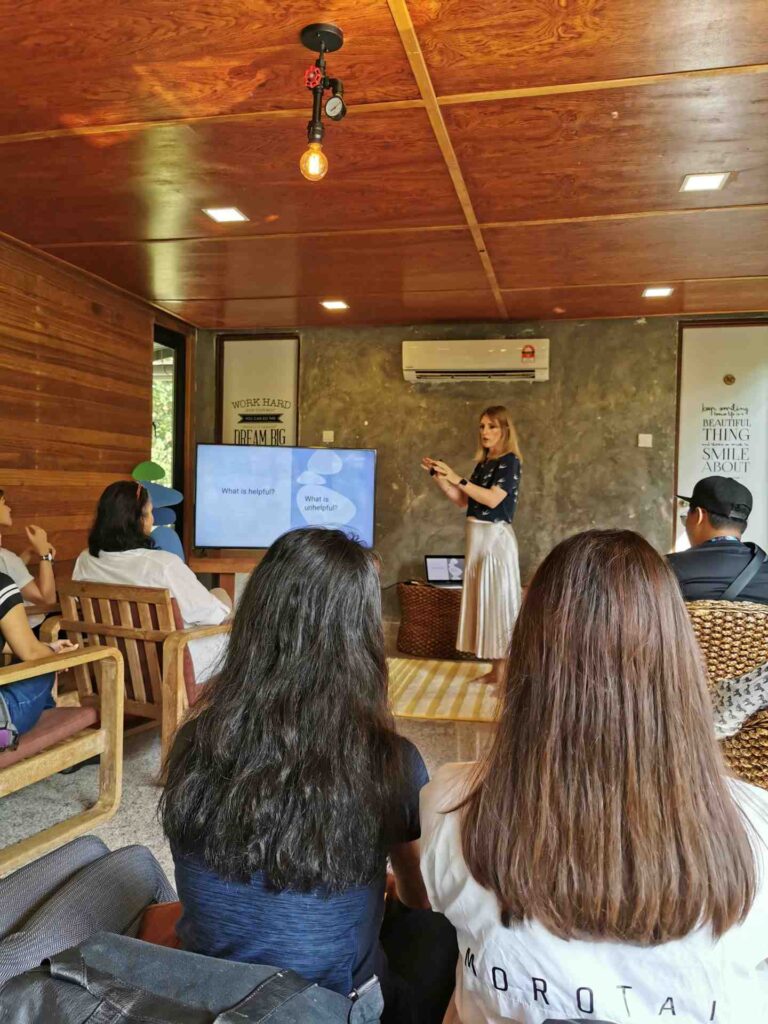
3. Professional Visit Pass (PVP)
This is the short-term variation of the Employment Pass (EP) – it’s valid for up to 1 year. It’s usually used for these types of work arrangements:
- Undergoing or providing practical training
- Providing technical installations
- Providing religious services
- Participating in trade shows
- Lecturing
- Volunteering
Another key difference with the EP is that PVP visa holders must be employed by a foreign company, not a Malaysian company.
You can’t bring dependents with the PVP, so it’s not the most family-friendly option – but it’s a good way to test out living in Malaysia and see if it’s a good fit in the long run for your family.
Eligibility:
- Must be 18 years old or older (or at least 30 years old if providing religious services).
- Must have a sponsor in Malaysia to submit the PVP application – usually the organization you’ll be attached to.
Validity: Up to 12 months. Non-renewable.
Allowed To Work In Malaysia?: You can only work for the organization that the PVP was applied under.
Limitations:
- This pass doesn’t allow for residency in East Malaysian states: Sabah & Sarawak.
- Dependents can’t be included in the application.
How To Apply: Once you’ve been offered a job in Malaysia, the application will be done by your employer.
4. Residence Pass-Talent (RP-T)
The Residence Pass-Talent (RP-T) is a long-term visa for highly skilled expatriates who have been living and working in Malaysia. It sets the path for long-term residency.
You can be an especially good fit for the RP-T if you’re highly experienced in finance, technology, engineering, healthcare, or education.
Eligibility:
- Must have worked in Malaysia for at least 3 years.
- Minimum monthly income of RM15,000 (USD$3,200).
- Must have relevant academic qualifications and at least 5 years of work experience.
- Has a Malaysian income tax file number.
- Must have a valid Employment Pass at the time of application with at least 3 months validity.
Validity: 10 years, renewable.
Allowed To Work In Malaysia?: Yes. The RP-T allows the holder to work with any Malaysian company without the need for additional work permits. Dependants can work or study in Malaysia.
Dependent Visas:
- Dependents can be included in the application: spouse, children under 18 years old, and parents.
- Spouses are allowed to work in Malaysia without requiring separate work permits.
- Children are allowed to study in Malaysia without needing separate student visas.
Limitations:
- Must maintain continuous employment in Malaysia.
Processing Time: Approximately 3 to 6 months.
How to Apply: Online application via the Residence Pass-Talent (RP-T) portal.
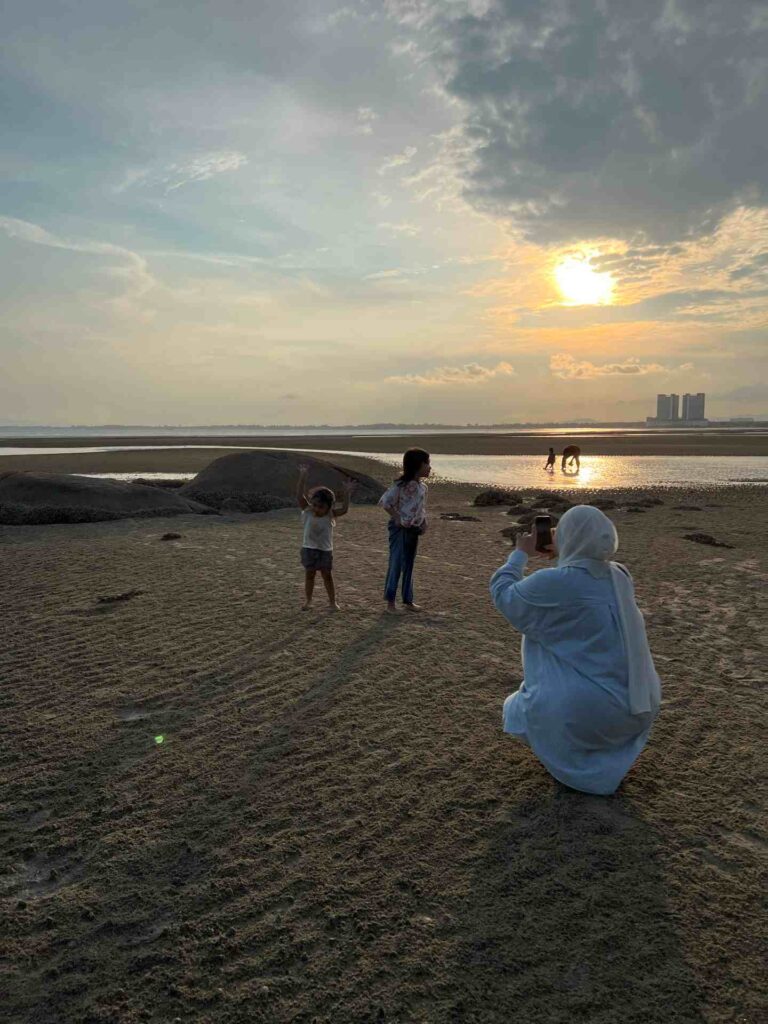
5. Malaysia My Second Home (MM2H)
The Malaysia My Second Home (MM2H) Program is Malaysia’s long-running and highly popular retirement program. It requires significant financial assets and in return offers a long-term renewable visa for you and your dependents.
There have been some reshuffles to the program in 2024, and it now has a 3-tier system:
| MM2H Category | Silver | Gold | Platinum |
| Validity | 5 years | 15 years | 20 years |
| Renewable | Yes | Yes | Yes |
| Ability To Work In Malaysia | No | No | Yes |
| Eligible Dependents | SpouseChildren below 21Children with disabilities (no age limit)Children between 21 to 34 who are not working or married in MalaysiaParentsParents-in-law | ||
| Minimum Stay | 90 cumulative days | ||
You’ll need to invest quite a fair bit to be eligible for the MM2H program. Here’s an overview of the financial requirements:
| MM2H Category | Silver | Gold | Platinum |
| One-Off Participation Fee | RM1,000(USD$220) | RM3,000(USD$640) | RM200,000(USD$43,000) |
| Fixed Deposit* | USD150,000 | USD500,000 | USD1,000,000 |
| Home Purchase | Residential property worth at least RM600,000(USD$128,000) | Residential property worth at least RM1,000,000(USD$220,000) | Residential property worth at least RM2,000,000(USD$440,000) |
*Note: Can be partially withdrawn after 1 year for purposes of property purchase, education, or medical expenses.
Additional Eligibility Criteria:
- Must have health insurance that’s valid in Malaysia.
- Must have a medical report from a Malaysian healthcare institution.
Processing Time: Approximately 3 to 6 months.
How to Apply: You can apply directly through the Malaysian Immigration Department but I highly recommend applying via a licensed MM2H agent. It’s a lot more complicated compared to the other types of visas we’ve discussed earlier.
What Are The Most Family-Friendly Cities In Malaysia?
You’ll find the biggest expat populations in these Malaysian states:
- Kuala Lumpur / Selangor (collectively known as the Klang Valley)
- Penang
- Johor
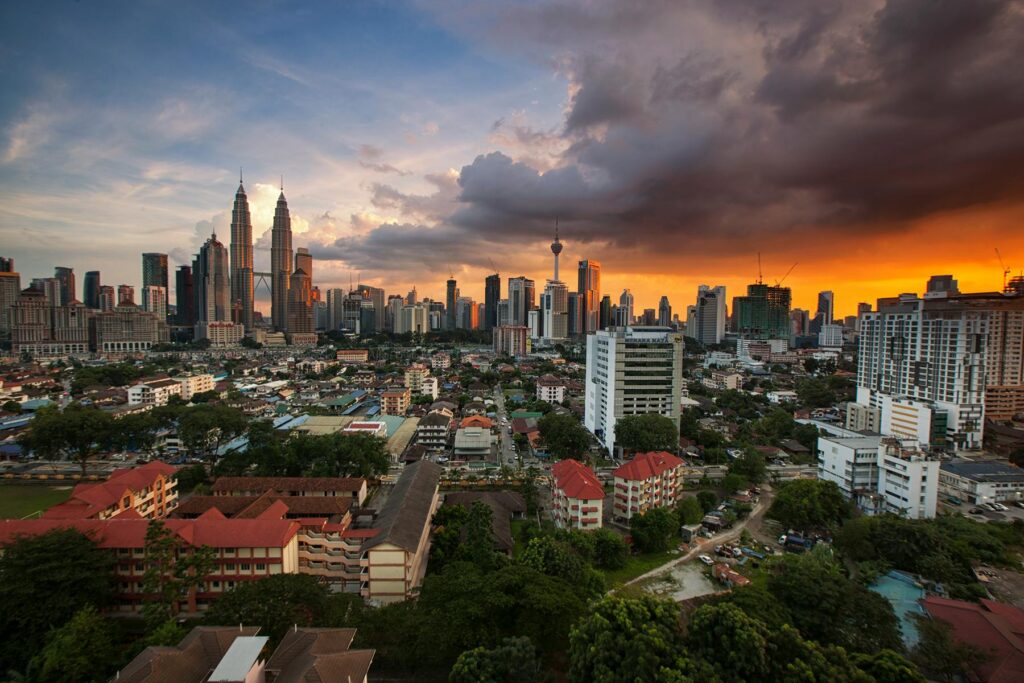
Klang Valley: Kuala Lumpur & Selangor
Kuala Lumpur consistently ranks in the Top 10 Best Cities for Expats – this bustling capital city offers robust economic opportunities and a high standard of living.
Klang Valley has the widest range of options for healthcare, international schools, and universities. You’ll also find plenty of family-friendly attractions here, from convenient kid-friendly cafes to the most imaginative indoor playgrounds.
As you might expect, Klang Valley has the highest property prices and cost of living in Malaysia. That being said, it’s still significantly lower than the U.S., U.K., Canada, Australia, and Singapore.
Neighborhoods with big expat communities in Klang Valley:
- KL city center
- Mont Kiara
- Bangsar
- Damansara Heights
- Taman Tun Dr Ismail
- Desa Park City
- Ampang
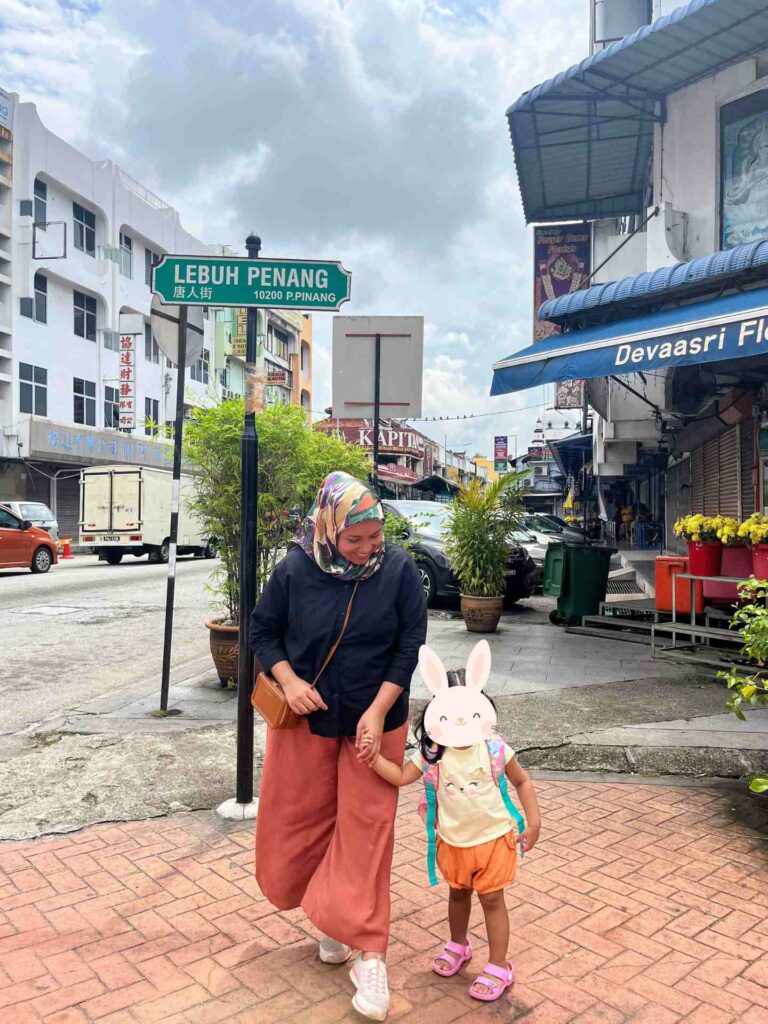
Penang
This island in the north is another bustling state in Malaysia – though it’s more relaxed compared to living in KL. Island living will do that to ya 😉
Penang is home to a long list of MNCs including Dell, Abbott, and Toshiba, and has a robust startup scene.
You’ll find great options for private hospitals and international schools here as well.
Penang’s capital city George Town has a lot of soul. The UNESCO World Heritage Site retains a lot of its colonial architecture, and it gives the city such a rich personality.
Plus, Penang is the unofficial food heaven of Malaysia (I agree 100% but my family’s from here so… maybe don’t take it from me :P).
Neighborhoods with big expat communities in Penang:
- Batu Feringghi
- Tanjung Bungah
- Gurney Drive
- Bayan Lepas
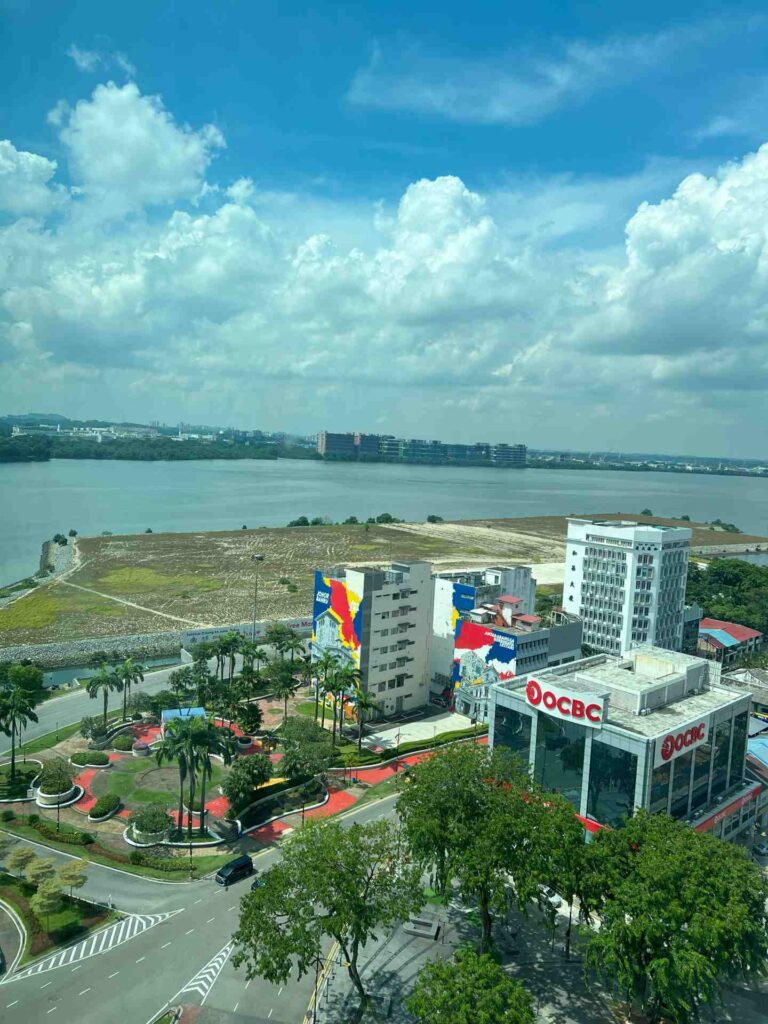
Johor
This southern state is right next door to Singapore, and it’s very common for expats who work in Singapore to live in Johor Bahru city – the cost of living in JB is significantly lower.
You can rent beautiful, modern apartments in the city center for anywhere around USD$300 – $600 a month (depending on the size). That’s a fraction of what it would cost in Singapore. You’d just need to allocate some extra time for commuting between the 2 cities.
Although the choices aren’t as diverse as you would get in KL, there’s a decent selection of private healthcare providers and international schools here in Johor as well.
Just like with Penang, Johor has a more laid-back vibe compared to KL.
Neighborhoods with big expat communities in Johor:
- Johor Bahru
- Iskandar Puteri
Is Malaysia A Good Place To Live?
That fully depends on what you’re looking for when settling down someplace.
Malaysia’s biggest appeal is its comparatively low costs despite offering a high standard of living, its gorgeous year-round tropical weather, and almost everyone (in the big cities, at least) speaks English.
Being a Muslim country, Malaysia is especially appealing to Muslim expats for its excellent faith-related facilities. It’s easy to find halal food everywhere in the country, and prayer rooms are available at almost any mall or public building you visit.
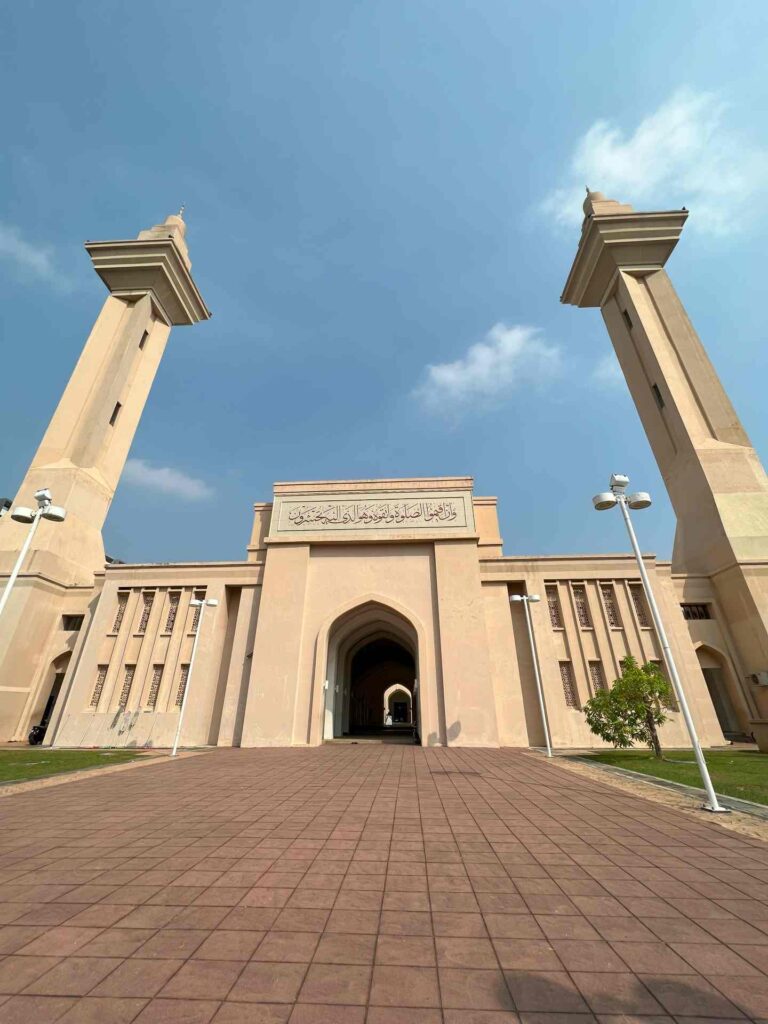
Pros & Cons Of Living In Malaysia
Let’s discuss further on the advantages and disadvantages of living in Malaysia, so you’ll have a better idea if it’s a good fit for your family.
Some pros of living in Malaysia:
- It’s relatively affordable: Housing, transportation, groceries, and eating out costs are lower here than in countries like the U.S., U.K., Canada, Australia, and Singapore.
- It’s rich in history and culture: Malaysia is multicultural and you’ll find a wonderfully diverse range of food, festivals, and experiences that make up Malaysian life.
- Active expat communities around the country: Most bigger cities have an expat social group.
- (Almost) everyone speaks English: There isn’t much of a language barrier in the bigger cities.
- Warm tropical weather: It’s summer all year round 🙂
- GORGEOUS natural wonders: There’s so much to explore in Malaysia, from beautiful beaches to lush rainforests. Hiking and glamping are super popular activities throughout the country.
- Excellent healthcare: Access to GPs and specialists is incredibly easy here – just make an appointment for your preferred time. Most private hospitals like Pantai Hospital in Bangsar and Prince Court in KL city center offer excellent service!
- Quality educational institutions: There are plenty of good international schools, including Tenby Schools, Alice Smith, and Garden International School. For higher education, you’ll find a wide selection offering diverse fields. Taylor’s and Monash are some of the best ones.
- Warm and friendly people: It’s in our DNA to care about others (sometimes to the point of being invasive >.<). But we’re a social bunch, we love gatherings (which 100% of the time will involve an overabundance of amazing food), and most of us genuinely care about our family, friends, and neighbors.
Some cons of living in Malaysia:
- Weak ringgit: The local currency has been in decline, now equivalent to around RM4.33 per USD$1. This isn’t necessarily a con if you’re earning in a stronger currency while living in Malaysia.
- Bureaucracy: Having to deal with any administrative bodies tends to involve longggg waits and confusing paperwork.
- General lack of work-life balance: The corporate landscape in Malaysia is slowly evolving to reflect more current working arrangements, but overall there’s still that archaic culture of “overworking = productive”.
- Limited public transportation: It’s not always easy (or downright possible) to get around via public transport in non-central areas.
- It gets REALLY humid: The tropical weather is wonderful if you love warmer climates but if you generally prefer cooler weather, the humidity will get to ya.
- Sometimes there’s haze: Malaysia is blessed to be out of natural disaster zones like hurricanes and earthquakes BUT we do get haze occasionally due to forest fires.
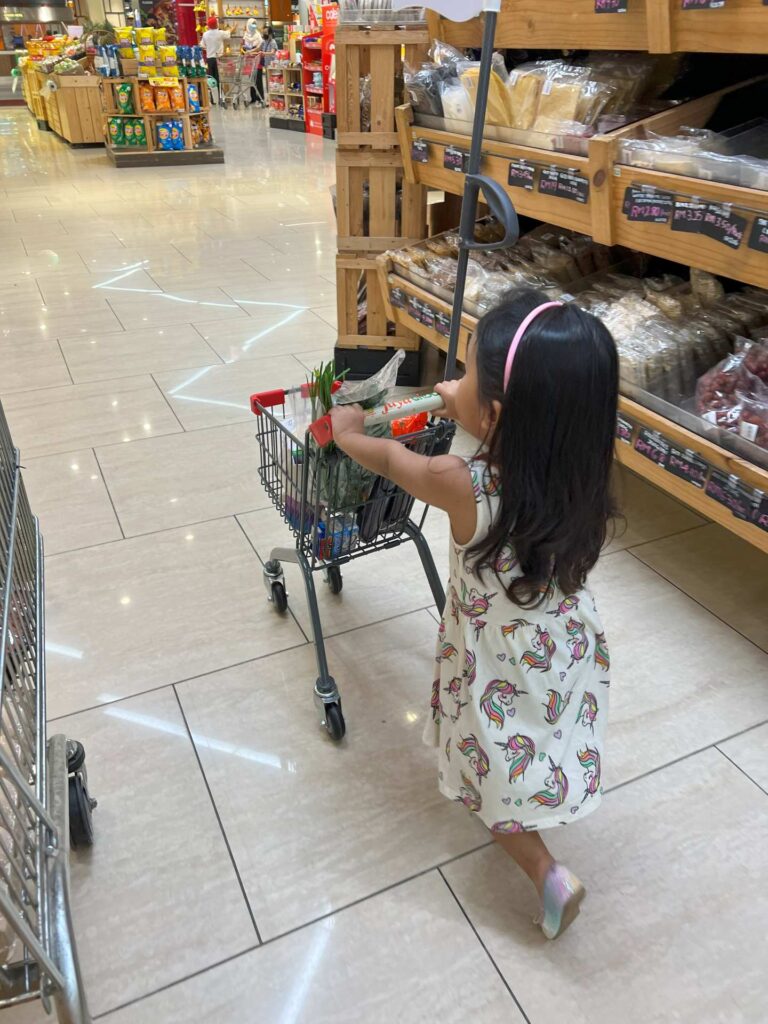
Cost of Living in Malaysia with Family
Malaysia has a relatively affordable cost of living.
Housing is one of the biggest expenses, but prices vary depending on the location and type of residence.
For example, renting a three-bedroom apartment in Kuala Lumpur city center can cost between RM4,000 to RM8,000 per month (around USD$850 – USD$1,700). Similar accommodations in the suburbs tend to cost less, from RM2,500 to RM5,000 (USD$530 – USD$1,100).
Groceries, dining out, and household services are reasonable.
A family of four can expect to spend around RM1,500 to RM2,500 (USD$320 – USD$530) per month on groceries.
Local food is fairly inexpensive, with meals at hawker centers or food courts costing between RM5 to RM15 (USD$2 – USD$4) per person, while dining in mid-range restaurants may range from RM30 to RM80 (USD$7 – USD$17) per person.
Utilities such as electricity, water, and internet average between RM300 to RM600 (USD$65 – USD$130) per month for a standard household.
Transportation is also affordable, with petrol priced at RM3.19 per liter (USD$0.75), and ride-hailing services like Grab offering a convenient way to get around.
Overall, Malaysia offers a comfortable lifestyle for expat families with reasonable costs across essential areas.
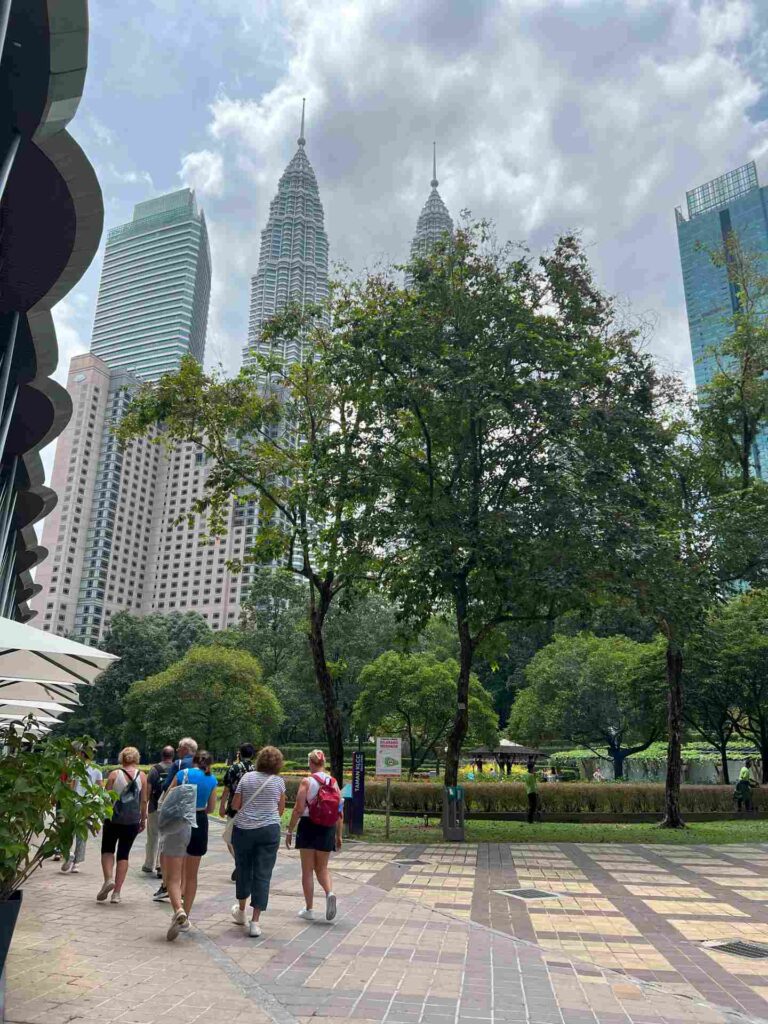
Is Malaysia A Safe Country?
According to the 2024 Global Peace Index, Malaysia is the 10th most peaceful country in the world. Crime rates are comparatively low here – but just like any city in the world, it’s certainly not crime-free.
While violent crime isn’t rampant, home break-ins and burglaries do happen – even to houses in gated communities. For this reason, I much prefer staying in apartments where security tends to be tighter.
Wherever you travel in Malaysia, be especially wary of pickpockets and snatch thefts. Be especially careful when you’re carrying your bag while walking on sidewalks – always carry your bag on the arm that’s away from the road.
There has also been an alarming increase in child kidnapping incidents in Malaysia lately. There’s a lot to be said about the Malaysian police force but at the very least, they’re known to be efficient in solving missing children cases.
Safety Tips In Malaysia From A Local Mama
As a mum who spends a fair bit of time going around KL with my toddler daughter, I do feel somewhat safe exploring the city just the two of us but I always rope in family and friends to accompany us whenever I can.
In terms of locations, we mostly keep to kid-friendly places like indoor playgrounds, parks, play cafes, libraries, and museums.
These are some measures I take to help improve our safety:
- Invite my husband/parents/siblings/friends to tag along where they can. The more, the merrier. 🙂
- I try my best to avoid potentially unsafe situations (deserted parking lots, very large crowds, etc).
- Share my location on WhatsApp with family so they’re aware of my current whereabouts.
- I never post on social media in real-time, especially if my posts have a location tagged.
Navigating The Healthcare System In Malaysia
Public Healthcare
The capabilities of public healthcare in Malaysia are advanced – they’re not too far off from Canada and the U.K.. They’re actually more equipped than private hospitals in Malaysia – it’s not uncommon for private hospitals to transfer their patients to government facilities for certain treatments.
Public healthcare fees are heavily subsidized. Patients pay a nominal fee for treatments here – though these nominal fees are only extended to Malaysian citizens. Non-citizens are not eligible for the subsidized rates.
That being said, they have huge issues with understaffing and overcrowding. To put it simply, don’t expect comfort and pleasantries at government hospitals and clinics.
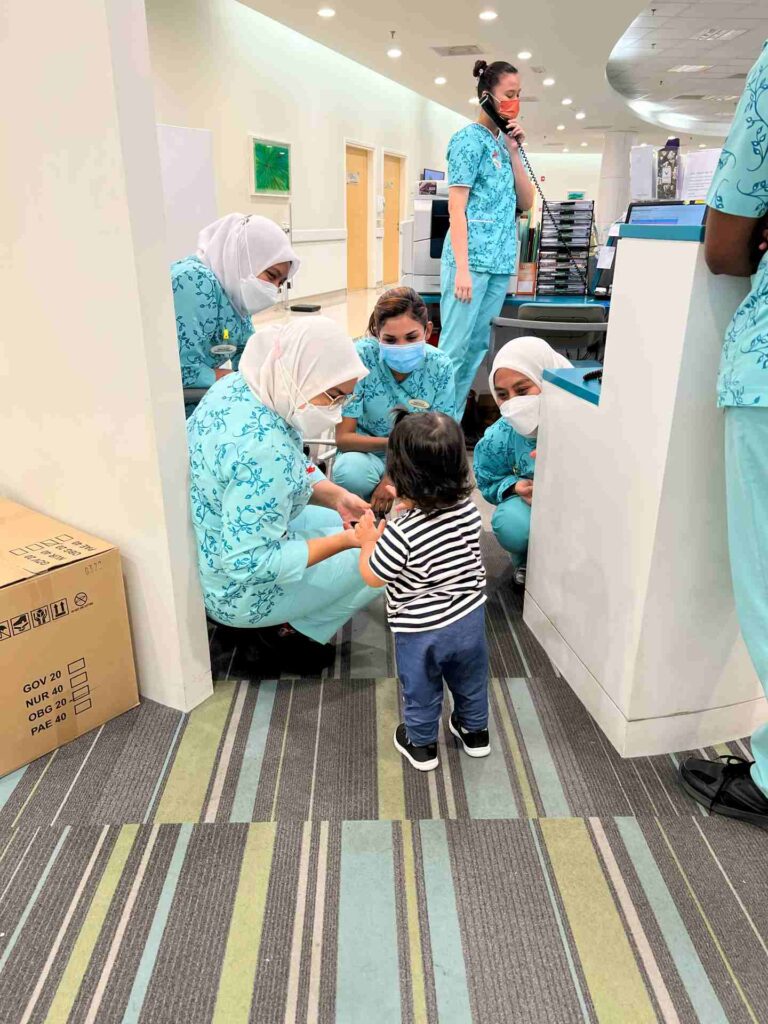
Private Healthcare
Malaysia’s private healthcare sector is world-class, with many hospitals accredited by international organizations.
You can make an appointment with your preferred doctor at any time. Private hospitals are the go-to route if you seek superior patient care, minimal wait times, and English-speaking staff.
Most private hospitals in Malaysia are set up to feel almost like a hotel, offering top-notch medical services in a comfortable environment.
They cost significantly higher than public hospitals, but even then, private healthcare in Malaysia is considered affordable.
Here are some average costs you can expect at private facilities:
- GP visit: RM30 – RM125 (USD$7 – $30)
- Specialist visit: RM80 – RM235 (USD$20 – $55)
- Chemotherapy (per cycle): RM50 – RM4,000 (USD$12 – $930)
- Angiogram: RM15,000 – RM45,000 (USD$3,500 – $10,400)
Do You Need To Have Insurance In Malaysia?
If you’re employed by a Malaysian company, you’ll be covered by Malaysia’s mandatory Foreign Worker Hospitalisation and Surgical Insurance Scheme.
The scheme covers surgery, hospitalization, accidents, and illnesses but is limited to treatments in government hospitals and has a low coverage limit of RM20,000 (USD$4,700).
Because of this, it’s highly recommended to take up private health insurance to protect against unexpected medical costs – especially if you plan to use private hospitals or clinics, which many expats prefer for shorter wait times and more comprehensive care.
I was recently introduced to SafetyWing and I find it to be a comprehensive and practical choice for families looking to move abroad.
SafetyWing’s Complete Plan is ideal for long-term travelers, digital nomads, and expats. These are some features that stand out to me:
- Covers medical expenses up to USD$1.5 million, including hospital stays, nursing care, emergency dental, and more.
- You’re covered in your country of residence and anywhere you travel (except any country or area that is sanctioned).
- Includes routine check-ups like screenings and vaccines
- Includes visits with a psychologist or psychiatrist
- Includes cancer tests and treatments
- Includes maternity care (!!)
- Renewable annually
It’s reasonably-priced too, starting from USD$161.50 per month (you get 10% off if you choose to be billed annually).
Navigating The Education System In Malaysia
The education system in Malaysia offers a wide variety of options, making it relatively easy to find a school that suits your family’s needs.
Most international and private education groups here offer programs from early childhood up to higher education.
International Schools
International schools are the most popular choice for expats in Malaysia. They provide a familiar environment for expat children, with English used as the primary language.
The international schools here offer globally recognized curricula such as the British, American, Australian, or International Baccalaureate (IB) programs. There’s a good selection of Islamic international schools too.
International schools in Malaysia are mostly found in major cities like the Klang Valley, Penang, and Johor Bahru. Fees tend to be on the higher end compared to private schools and public schools.
These are some of Malaysia’s most popular international schools:
- The International School of Kuala Lumpur
- Garden International School (Kuala Lumpur)
- Alice Smith School (Kuala Lumpur)
- International Islamic International School (Kuala Lumpur)
- IDRISSI International School (Selangor, Johor)
- Raffles American School (Johor)
- Straits International School (Penang)
- Stonyhurst International School (Penang)
Private Schools
Private schools in Malaysia usually follow the Malaysian national curriculum, preparing students for the local major examinations. The primary teaching language in these schools is English.
Their fees are generally more affordable compared to international schools but that would still vary from school to school.
It’s becoming increasingly common for local families in larger cities to send their kids to private schools, so I feel that private schools offer a good balance if you’re looking to integrate your children with local kids in a familiar environment.
These are some of Malaysia’s most popular private schools:
- Cempaka School (Kuala Lumpur)
- Asia Pacific Schools (Selangor)
- Tenby Schools (Selangor, Ipoh, Penang, Johor)
Public Schools
Public schools in Malaysia follow the national curriculum and are the most affordable option – the fees are minimal. Public schools are widely available across Malaysia including smaller cities.
However, this is the least popular option for expat families, as there’s significant paperwork to be done for non-citizens to enroll in Malaysian public schools. You’ll need to apply for a foreign student pass for your kids.
The primary language at public schools is Malay.
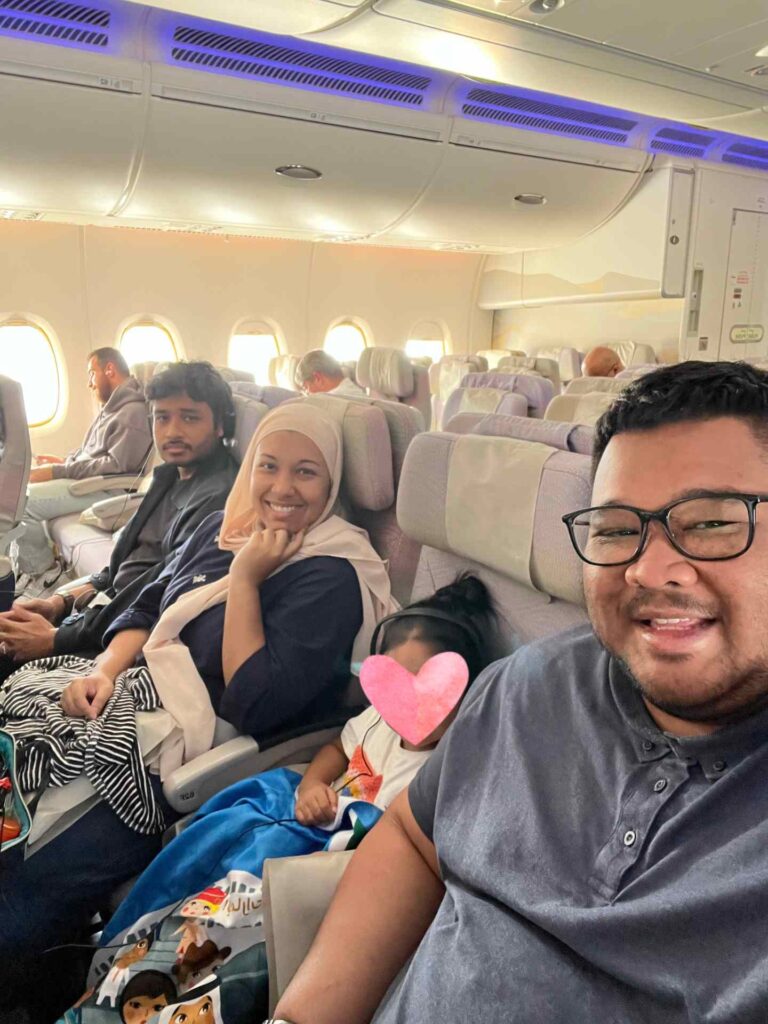
Relocating To Malaysia: Quick FAQs
That concludes my guide on moving to Malaysia with family!
Overall, Malaysia offers a welcoming environment for expats – it has a vibrant, multicultural vibe, it’s affordable, and there are quality family-friendly facilities.
For easier reference, I’ll recap some FAQs to get things moving for you:
Which visa should you go for?
If you’re initiating the move to Malaysia on your own (not because you’ve been offered a job here), then the most accessible route would be the DE Rantau Nomad Pass, which allows you to live and work remotely in Malaysia.
Where’s a good place to settle down with kids in Malaysia?
Kuala Lumpur offers the best options for expats in terms of healthcare, education, and lifestyle.
I highly recommend Mont Kiara. It’s a lovely little walkable neighborhood with good international schools, plenty of kid-friendly restaurants and facilities, and convenient malls to get your shopping and groceries done.
This suburban area is a 20-minute drive to the city center where you’ll find all the major kids’ attractions like KLCC Park, Aquaria, and Petrosains.
If you like a more local vibe, consider Sunway or Subang Jaya. There are plenty of private and international schools in the area, and you’ll find plenty of really cute local eateries and cafes here.
The super popular Sunway Lagoon Theme Park is in the area. There’s a fantastic park called PARC in the area which hosts lots of interesting events on the weekends.
Where can I connect with other expats and mums in Malaysia?
Here are some social groups you can check out:
- KL Expat Malaysia Facebook group
- Expats in Penang Facebook group
- Johor Bahru Expat Community Facebook group
- IBU Family – wonderful local social group for parents in KL and Penang
I hope you’ve found this guide helpful! If there’s anything I missed out on, feel free to drop me an email at [email protected] – I’d be happy to help where I can 🙂
May everything go smoothly for your new adventure. Welcome to Malaysia! <3
Get To Know The Best Family-Friendly Activities In KL:
- Super Fun Kuala Lumpur 3-Day Itinerary For Families (Google Map Included)
- 27 Best Kid-Friendly Restaurants In KL With Play Areas & Kids’ Menus
- Local Mama’s Tip: There’s A Free Kids’ Pool & Playground In KLCC!
- Did You Know Kids Under 7 Enter For Free At KL’s National Science Center?
- Have You Tried This KL Museum’s Free Activities For Kids?
- I Think This Might Be KL’s Best Indoor Playground (It’s Cheap, Fun & Inclusive!)
- 10 Best Things To Do At Petrosains Activities (For Toddlers & Big Kids)
- Aquaria KLCC Review: 5 Things I Like (And Some Things I Don’t)
- Complete Sunway Lagoon Theme Park Guide For Families
- Kuala Lumpur With Teens: Immerse Yourself In A Horror Movie Production! O.o
Get Family-Friendly Coverage 👨👩👧👧⬇️

Pin To Save This Moving Guide! 📌
